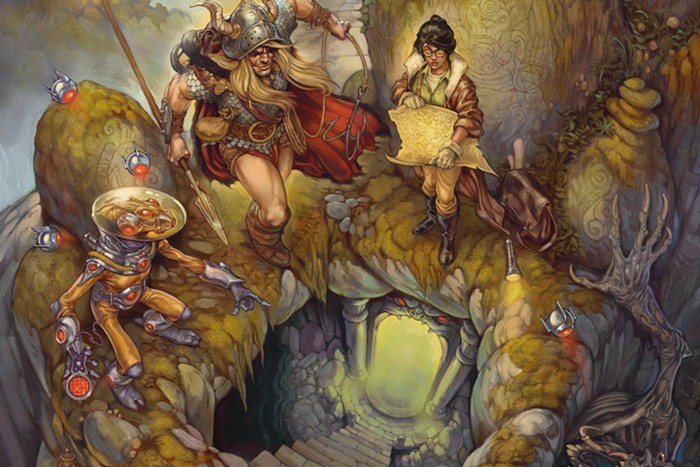Jamaica Kincaid's prose used to be complex without being obnoxious and riddled with bitter little poems that could move us, make us feel deeply. But in her newest novel, See Now Then (Farrar, Straus and Giroux, $24) the repetition and difficult rhythms that felt intrinsic to her earlier work now seem to have curdled into an obsessive-compulsive rage against writing itself, or against writing's failure to amend the past.
The line between originality and total incomprehensibility needn't be so thin, nor result in sentences like this one: "The young Heracles, growing in youth, not growing older, growing in his youth, becoming more perfectly youthful, his many tasks to perform, performing them more perfectly, at first performing them awkwardly..." First of all, what the hell? And second of all, there is only so much I can swallow in the name of satire. No, you should not read this book if you are looking for beautiful prose, or even just prose that isn't hideous. You should not read this book if you enjoy plots, or skillful editing. And you absolutely shouldn't read it if you want characters that embody anything more than a cruel parody of our worst selves. Kincaid seems to want to grind these obvious assumptions into pulp against our thick skulls: Time is relative, passionate love begets passionate hate, snobbish intellectualism is fun to mock, the deterioration of a marriage is excruciating.
We are encouraged to see the middle-aged and very married Mr. and Mrs. Sweet as mythical figures in the grip of a suburban Greek tragedy. They live in a quiet New England village in the house where Shirley Jackson once lived, raising their beautiful daughter Persephone and their heroic son Heracles with bemusement and detachment. Their gods are McDonald's and Wet Seal, clothes dryers and utility companies. Their tragedy is that they hate each other with supernatural intensity from their respective brooding rooms—he composing nocturnes with titles like The Marriage Is Dead, she knitting him a pair of testicles out of yarn, to replace the ones their son threw into the Atlantic Ocean. Mrs. Sweet is a "horrible bitch who'd arrived on a banana boat"; Mr. Sweet is "old and the size of a mole."
This viciousness is funny at first, but it gets old fast. The allusion to mythology, so promising in the early chapters, is soon obscured by a terribly circular narrative concerned primarily with its own cleverness. We can't care about this new Persephone and this new Heracles as we would their mythological predecessors because the novel so reeks of stylistic device that it distracts us from feeling. Even more irritating is the fact that Kincaid seems unable to let a single thought stand alone, and insists on revisiting the same notions—aging, dying, failing—repeatedly until they mean nothing. "Mrs. Sweet died and died and in this way she lived for a long time, dying over and over again, never coming to a rest, a state of not then, not to come, not to have been, only now, only die and die and die..." Mr. Sweet can't stand it, either, and leaves Mrs. Sweet for a young musician. Ultimately, the story dissolves without having said much of anything, a little banana-colored puddle of glum where a book should have been.
Kurt Vonnegut once gave writers a great piece of advice: "Literature should not disappear up its own asshole, so to speak." See Now Then seems to ask if literature can perhaps disappear so completely that it turns inside out and reemerges into the light. Evidently, it can't. ![]()



















